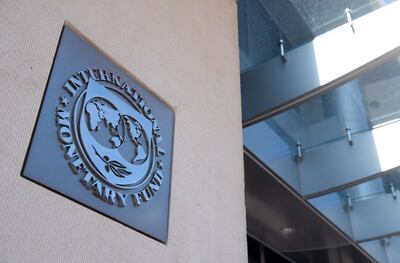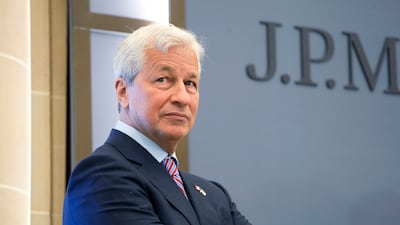Strange how it’s taken a banker of all people to articulate what many are thinking – and global financial institutions are shying away from.
Jamie Dimon, the boss of JP Morgan, delivered it straight: “This may be the most dangerous time the world has seen in decades.”
A cynic might say, well it’s all right for him, presenting third quarter net profits for his giant bank of $13.15 billion. (A quarter, just in three months!) They were up from $9.737 billion for the same period last year – but down on the second quarter’s $14.5 billion.
Dimon, though, did not have to say anything at all. Plenty of his peers and yes, heads of the world’s monetary organisations, are keeping their counsel.
The bank chief warned there is a risk that inflation will stay high and that interest rates climb further.
The war in Ukraine, compounded by the Hamas attacks on Israel, said Dimon, “may have far-reaching impacts on energy and food markets, global trade and geopolitical relationships. This may be the most dangerous time the world has seen in decades”.
As he spoke, the IMF and World Bank were holding their annual meetings in Marrakesh. Did they echo Dimon’s concern? No. Not when they had the opportunity and public platform to do so. Their declared view was that it’s too early to say what impact the war between Israel and Hamas will have on the global economy.
That’s true, of course, It implies, however, that everything was fine and dandy even before the Hamas onslaught, which it most definitely was not.
Dimon was clear in his assessment, choosing his description carefully, that the Hamas attacks “compounded” an already worrying situation.

The Russia-Ukraine conflict shows no sign of ending any time soon. If anything, a sense of torpor has set in, with some governments growing visibly bored of its longevity, and switching off. There seems to be little urgent, meaningful diplomatic activity taking place towards achieving a settlement – if it is, it is well below the radar (here's hoping).
Global inflation is proving stubbornly sticky to dislodge. Interest rates remain high. They’ve dipped slightly, but central bankers are not celebrating. Indeed, the IMF has said in its just published Outlook that 93 per cent of those countries which set a target for bringing inflation down would not meet them next year. That study was compiled before Hamas lit the fuse.
Recent analysis from UNCTAD (UN Conference on Trade and Development) finds that rising interest rates are driving inequality across the globe and promoting lower levels of investment. Again, the report was written ahead of Hamas striking.
Some nations, notably China, are still struggling with the aftermath of Covid. Poverty is on the increase around the world. Then there is climate change.
What’s concerning is the relative nonchalance where there should be none. All that was achieved in Morocco was that the new World Bank president, Ajay Banga, outlined his vision of a “bolder, bigger, better” World Bank, there was acceptance that the IMF should receive greater funding – oh, and Zambia received assistance towards debt relief.
That was about it. What there was not, along with the absence of alarm, was meaningful action, a sense that things cannot go on as they are.
Achim Steiner, administrator of the UN Development Programme, did spell out one aspect: 52 countries are already in financial distress or at the risk of distress; and nine of the 52, among them Argentina, Zambia and Sri Lanka, have already defaulted.
Far from rushing to assist, the developed nations are in retreat, dealing with their own economic problems and closing their minds to helping others, unless that will improve their tax base.
Cash continues to drain away from Africa in illicit financial flows, mostly to Europe, but the latter only displays an interest in curbing the stream of dirty money from corruption, organised crime and the siphoning of aid development if they can point to revenue gains at home.
Average temperatures are climbing and wildfires and heavy flooding are becoming commonplace, but Germany has reopened its coal plants and the UK has sanctioned a return to extracting fossil fuels. It’s their way of reacting to Ukraine and vulnerability over energy security. But for other developing nations, charged with focusing on renewables, it sticks in the craw.
New power blocs are forming that will not only take some getting used to but promise greater self-interest and destabilisation.
It’s striking that the UN has not been able to bring muscle to bear on the situation in Ukraine, and it’s seemingly unable to dampen the growing Middle East powder keg. From a UK perspective, the decision of the Prime Minister, Rishi Sunak, to miss the last UN General Assembly sent a dreadful signal as to what matters to him more – shoring up his faltering government or leading his country in international co-operation.
The world bodies require boosting and in short order. The trouble is, as the main powers see it, their interests are not best served by any move in that direction.
Likewise, anyone searching for strong figures does so in vain, at least ones that can command universal respect. There’s a paucity of leadership. The international stage is crying out for strong voices – from politicians as well as institutions. There are no statesmen.
Donald Trump winning the US presidency would be deeply symbolic of how fragile the world order had become.
Why is that it takes the head of a multinational bank to express a collective fear? Our institutions, such as World Bank, IMF and UN, especially their leaders, need to be a bastion in these times.


